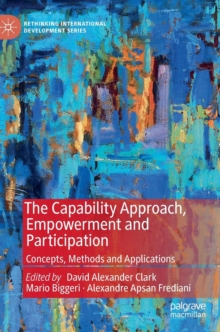
The Fragmentation of Aid : Concepts, Measurements and Implications for Development Cooperation Hardback
by Timo Casjen Mahn, Mario Negre
Edited by Stephan Klingebiel, Timo Mahn, Mario Negre
Part of the Rethinking International Development series series
Hardback
Description
This edited volume provides an assessment of an increasingly fragmented aid system.
Development cooperation is fundamentally changing its character in the wake of global economic and political transformations and an ongoing debate about what constitutes, and how best to achieve, global development.
This also has important implications for the setup of the aid architecture.
The increasing number of donors and other actors as well as goals and instruments has created an environment that is increasingly difficult to manoeuvre.
Critics describe today's aid architecture as 'fragmented': inefficient, overly complex and rigid in adapting to the dynamic landscape of international cooperation. By analysing the actions of donors and new development actors, this book gives important insights into how and why the aid architecture has moved in this direction.
The contributors also discuss the associated costs, but also potential benefits of a diverse aid system, and provide someconcrete options for the way forward.
Information
-
Out of stock
- Format:Hardback
- Pages:359 pages, 2 Illustrations, color; 8 Illustrations, black and white; XXVI, 359 p. 10 illus., 2 illus
- Publisher:Palgrave Macmillan
- Publication Date:09/09/2016
- Category:
- ISBN:9781137553560
Other Formats
- PDF from £101.58
Information
-
Out of stock
- Format:Hardback
- Pages:359 pages, 2 Illustrations, color; 8 Illustrations, black and white; XXVI, 359 p. 10 illus., 2 illus
- Publisher:Palgrave Macmillan
- Publication Date:09/09/2016
- Category:
- ISBN:9781137553560










